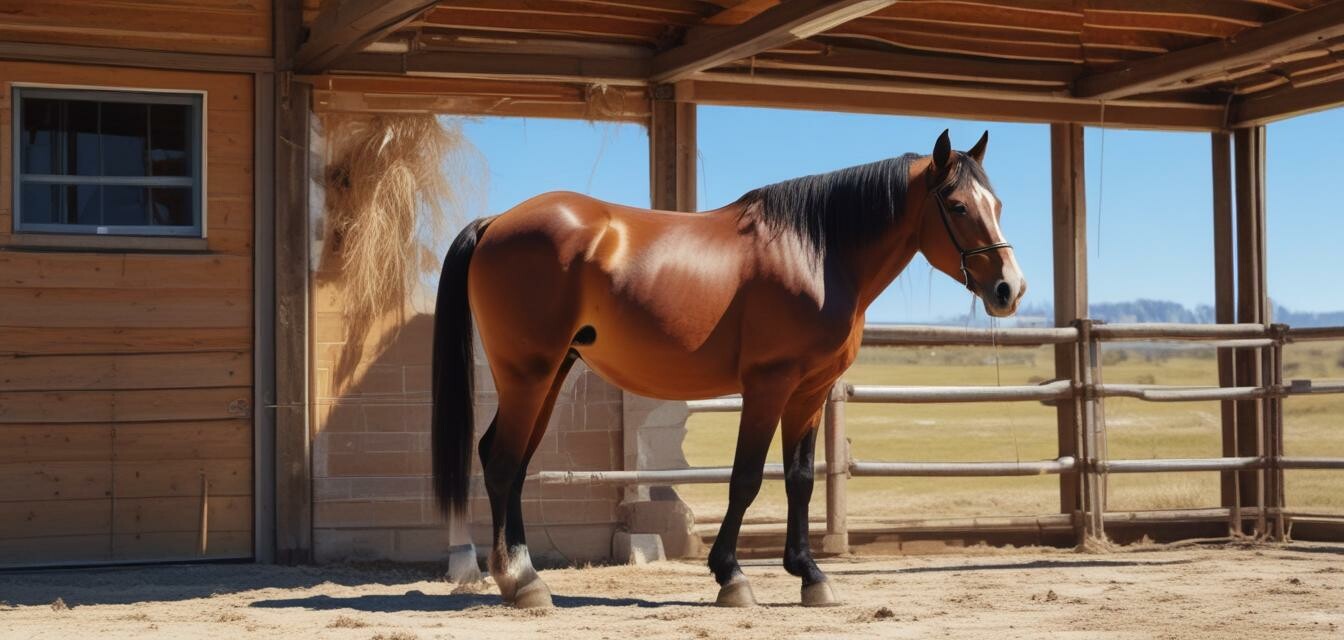
Preparing Your Horse for Extreme Weather Conditions
- Understand the signs of stress in horses during extreme weather.
- Provide adequate shelter and nutrition tailored to the conditions.
- Monitor hydration closely during hot temperatures.
- Groom your horse regularly to ensure comfort.
- Utilize appropriate gear for both chilly and hot weather.
As a horse owner, it's crucial to be prepared for extreme weather conditions, whether it’s the blazing heat of summer or biting cold in winter. Proper planning and care can ensure your horse remains safe and comfortable during these challenging times. In this article, we'll explore practical tips and strategies to keep your horse well-cared for, regardless of the weather.
Caring for horses during extreme heat
During heatwaves, horses face several challenges, including heat stress. Here are some essential tips to prepare your horse for hot weather:
- Hydration is key: Ensure that your horse has access to fresh and clean water at all times. Consider providing electrolyte supplements to aid in hydration.
- Provide shade: Create shaded areas in your horse's shelter or pasture to allow them to escape the sun.
- Time management: Plan workouts or rides during the cooler parts of the day, such as early morning or late evening.
- Regular grooming: Keep your horse well-groomed to enhance air circulation and remove sweat.
Signs of heat stress
Watch out for the following signs of heat stress in your horse:
- Heavy sweating
- Rapid breathing
- Increased heart rate
- Decreased appetite
Preparing horses for freezing temperatures
Winter brings its own set of challenges. Here are some essential strategies to keep your horse comfortable in cold weather:
- Shelter is essential: Provide a dry, draft-free shelter that protects your horse from wind and precipitation.
- Nutrition adjustment: Increase hay intake to provide extra energy and warmth.
- Warm water access: Ensure that water stays unfrozen. Consider heated troughs or buckets.
- Insulation: Use appropriate blankets for added warmth, especially for older or thin-skinned horses.
Monitoring your horse's condition
Regularly check for these signs in cold weather:
- Shivering
- Stiff movements
- Changes in appetite
- Unusual behavior
Essential gear for extreme weather
Whether facing extreme heat or cold, having the right gear is crucial. Here’s a breakdown of necessary equipment for both conditions:
| Weather Condition | Essential Gear | Purpose |
|---|---|---|
| Hot Weather | Fly sheets, Cooling blankets, and electrolyte supplements | Protect against sunburn and help cool down |
| Cold Weather | Thermal blankets, Waterproof rugs, and insulated shelters | Provide warmth and protect from snow and rain |
Conclusion
Effective preparation and care are vital to your horse's well-being during extreme weather conditions. By understanding the specific needs of your horse and being vigilant about their health, you can ensure they remain safe and comfortable throughout any weather. Explore other helpful resources in our Rider Tips and Advice section to further enhance your knowledge and skills.
Pros
- Enhanced horse health and comfort.
- Improved performance during rides.
- Peace of mind for horse owners.
Cons
- Initial investment in gear and shelter.
- Time-consuming preparation and monitoring.
Tips for Beginners
- Always consult with a veterinarian on best practices for care.
- Establish a routine for checking your horse regularly.
- Join local rider communities to share experiences and tips.
